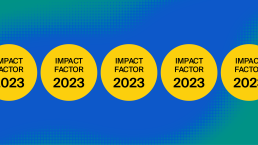
Planning a Research Paper
There is a lot of advice available for writing a research paper, but less about planning a research paper.
Here, we’ll go over some handy advice for getting through the planning stages of your manuscript to make the process easier.
What’s your paper’s purpose?
Knowing what it is that you’re trying to communicate is important. Many research papers get rejected for publication because the point of the paper is unclear. It’s very important for you to be able to communicate what your work is about effectively.
The introduction of your paper should be clearly written without any extra, unnecessary information. This is often the first thing (sometimes the only thing) that someone reads from your work. Make sure that you can simply say the following statement:
“This paper is about ___________.”
When you can answer this simply, writing the paper becomes easier.
Make sure everyone understands the goal of the research paper
Often, when there are multiple authors working on a research paper, the message can get muddied.
Authors often work on different parts of the paper. Sometimes different people have a lot of input (or none at all) on other sections of the text. This is why it’s important for all the authors to have a clear understanding of the focus of the paper. Remember, the focus of the paper is communicating research, not the act of research.
While research can sometimes have many complicated elements, communicating these elements might need to be more simple. Make sure that all the authors understand and don’t lose focus of the goal: communicate your research clearly.
Delegate responsibilities
Once everyone is on board with the direction of the research paper, it’s important to understand who is working on what part of the paper. Assigning different sections of the manuscript to different people is a good way to make sure that all the responsibility (and also stress) doesn’t fall on one person.
Breaking up the manuscript into smaller existing sections (for example, materials and methods, introduction, conclusion, etc.) and having one person do the initial draft is a good way to get the work done more quickly and efficiently.
Check all parts of the research paper
Once all the parts of the paper have been written, it’s important to put them together and do a read through of the paper. This is where you will be looking at the flow of the paper. Because many different people wrote different parts, you want to check for consistency.
Does the paper make sense?
Does your research get communicated clearly?
Is something missing?
Can something be simplified?
Is something too simple?
These are all examples of questions that you might want to ask yourself (and also be able to answer) before you move on to the next stage of the writing process.
English editing
This is an important stage, even though it isn’t related directly to your content.
Word choice, syntax, and verb tenses can have a major impact on how easily your work is understood. This can have a direct effect on how likely it is for your paper to get published. Making sure that the English language is of a high standard may not always be easy, so in those situations, using professional English editing services could be a good option.
We can help you edit your project

Understanding grammar can be challenging and time-consuming, so choosing editing services that work for you is important. There are many tricky concepts to grasp within English to ensure your work is accurate, and it always pays off to have a professional look at your work. If you need a quick basic edit or a comprehensive specialist edit, MDPI can help. If you’re still not sure, don’t have time, or want a pro to look at your references, let our skilled English Editors help. Visit MDPI Author Services now for a free estimate for fast, accurate, and professional editing.










